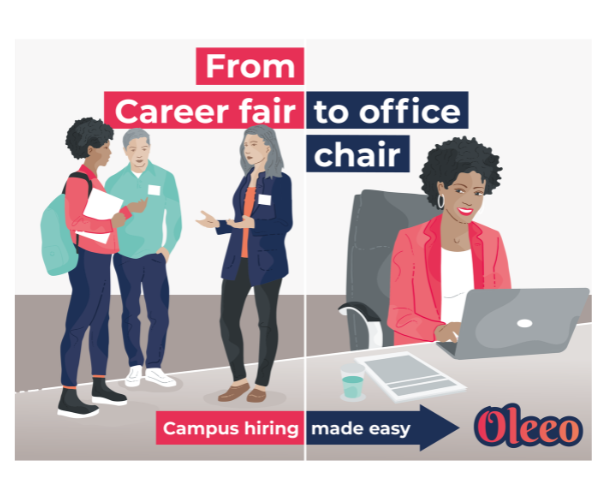Spotlight for Recruiting Professionals
As the sole URR practitioner at Commonwealth Care Alliance (CCA)—a Massachusetts-based nonprofit, community-based healthcare organization with 1,400 employees—Jesse Shearer faces several challenges in managing the company’s summer internship program.
However, Shearer explains, most of these obstacles can be cleared by being resourceful, especially by involving colleagues in the program’s planning and execution.
“[Our internship] program would not be successful without the team that I work with,” says Shearer, CCA’s talent acquisition specialist.
Each year, CCA assembles an internship committee, which includes Shearer and other members of the human resources department. Each committee member is responsible for different aspects of the internship program, from orientation and onboarding to the networking events that are scheduled throughout the internship.
“We meet each week leading up to the start of program to ensure all areas are covered and prepared prior to the start date,” Shearer says.
CCA’s non-clinical internship program is a paid, 12-week program available to rising juniors and seniors or to first-year graduate students. CCA partners and recruits from four-year colleges and universities across the country through the schools’ job boards and via networking with their career services offices. The company also participates in on-campus recruitment at schools in New England.
“We budget to hire 15 to 25 interns each summer, however, we want to ensure that we have thoughtful and meaningful projects for the interns to work on, so the number of available projects and departments able to mentor an intern drive the number we will hire,” Shearer says.
To keep its interns engaged and primed to convert to full-time employees, CCA offers several different networking events, during which interns are able to meet and speak with leadership from across the organization. The program includes up to four “lunch and learns” for students to get an overview of the healthcare industry and certain parts of the organization or to cover topics of interest to interns, such as how to interview successfully.
Of course, CCA made adjustments to its internship program in response to COVID-19 by switching to a virtual program. Shearer adds that the company will continue to adjust the program to conform to new guidelines as it determines what working in the office means.
“We are offering all of the same programs and scheduling them using Zoom,” Shearer adds.
“For orientation, we still plan to bring all of the interns together via Zoom and review the same information as if we were in the office. Instead of meeting in person every other week for check-ins, we will continue to do these check-ins via Zoom or other video technology. Managers are being coached to have more regular check-ins with their interns over video to increase the engagement.”
The CCA internship committee also ends its summer by holding a gallery tour—now virtual—during which students highlight the work they have done throughout the summer.
“We try to keep connections throughout the entire summer, checking in on our interns and seeing how they are doing with their projects to ensure they are having a productive internship,” Shearer says.
“I and many of my teammates also personally attend many of the events that our interns attend throughout the summer. Once they return to campus, we add them to our Internship Alumni Group on LinkedIn and reach out on a regular basis to maintain communication.”
Shearer knows that by infusing some ingenuity into the approach, CCA will offer a program that is beneficial to both the organization and to the interns. He says that it is important for URR professionals at smaller organizations to understand that they do not need a large budget—or, he insists, any budget—to manage an effective internship program or have effective relationships with college campuses.
“There are many other ways to engage with students for free, from information sessions to employer panels,” he stresses.
“Relationships and connections are free, and I believe great connections are the real success to a great internship program. Students are more interested in the experience they will gain from an internship. With a well-planned out and organized program, this can be achieved with a limited budget.”






